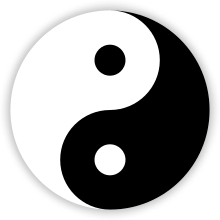It came upon me that there are two kinds of magic users.
There is one kind that goes out exploring, learns spells and throws fireballs from a staff. This is the one we model in D&D. They activelly seek to get into the monster's lair and take out their magic loot. This is Gandalf, this is the Dying Earth guys and also any wizard you see casting Bolt2 in Final Fantasy games. You can even argue that White mages and Priests from Dragon Quest belong to this group. Kvothe from The Kingkiller Chronicles does not have a staff, but it's otherwise a perfect example. Their magics are visible and obvious; immediate. They often embody the concept of Glass Cannon (fragile but potent combatants), but still a cannon. They are the Yang (or male) side of the casters, and we usually call them wizards. They often learn their craft by reading books in posh wizard colleges or equivalents and in their extreme variant do not require any special inner wisdom: just memorizing shit and repeat some words boldly. Their magic tends to have very clear rules for casting, very scientific with little mysticism.
The Yin (Female) kind also appears much in fantasy, but rarely in the form of main characters. Yin implies a degree of passiveness, so they are not specially suited to star in an adventure book, though they might fit better on more introvert, small-scoped novellas. Yin magic users do not cast flashy spells, but rather do things like influencing others or preparing potions. They are not usually adventurous but stay at home; sometimes for years or for life, improving their magical skills often in solitude. Their magic is not "shot" but instead often requires a degree of intimacy. It also works subtler and slower: they seduce, think, trick, deceive and plot to get their goals, to the point that sometimes it's not clear where the manipulation begins and the magic ends. We usually call this casters witches, and when they appear in a story is very likely that they are helping characters or villains. Rhea de Coos, Malefica, or the Fairy Godmother. Though they're often women, some male mages in fiction embody this archetype, for example Merlin in his mentor facet, Flagg from Eyes of the Dragon or Jafar from Aladdin.
In rpg games we usually play wizards. I don't think there is nothing bad at it: they just work better for what D&D does. Playing a witch is a little more difficult. Mind that if what she does in-game is to shoot elemental spells and go killing monsters 4 loot you are essentially playing a female wizard. The very act of being an adventurer is Yang on itself, while Yin would be concerned to introspection and travelling "the world inside you" (which can be awesome on itself but not an usual part of D&D). Yin wizards are present as NPCs such as antagonists, the alchemist hirelings or the potion sellers.
But as the Tao shows, Yin holds Yang inside and viceversa. So every single thing, and every magic user in existance has, of course, a little bit of both. To traduce this to rpg mechanics: If we assume both approaches of caster to be the same class (Magic User), how likely is that a Wizard can cast lots of spells, but require an alchemist to prepare a potion for them? and how likely is that said alchemist has researched lots of potions that are EVIDENTLY MAGICAL, but hasn't cared of learning a single level 1 spell? I think that the lines should blurr a bit in there. Still struggling to make my "perfect" magic system/class, and got stuck thinking about this. Ideally, a class should let you advance your character on either field, instead of making you choose between artificially created distinctions like "the Wizard class" or "the Alchemist/witch class". I've found this documents that might serve as inspiration in future attempts to create it. The challenge is that the more you push a character to become a "brewer" you put more emphasis on downtime, which might not sync well with the biorrhytm of the rest of the party.
There are, of course, some tricks like making potions "quantum" (as in, you are given X potion points each downtime, then you spend one point to produce a potion that "you always carried with you"). To make this ability organically mixed with the "fireball gun", magic users could choose to learn a potion recipe instead of a spell, with potions being more potent than level 1 spells, but not more than level 3 spells. This way one could advance freely between the wizard and witch concepts, while having a good reason to specialize in potions at the start of the game (more potency in exchange of more complexity) and a good reason to not do it (more spells, in the end they might be more useful, you never know). Also with spells get more powerful the more level you have (such as magic missile) it might compensate little at the start, but a lot when you are level 10 or more.
And, for closing, let me ask you a question: do you feel that you have ever played a "witch", in the Yin sense of word?



No comments:
Post a Comment